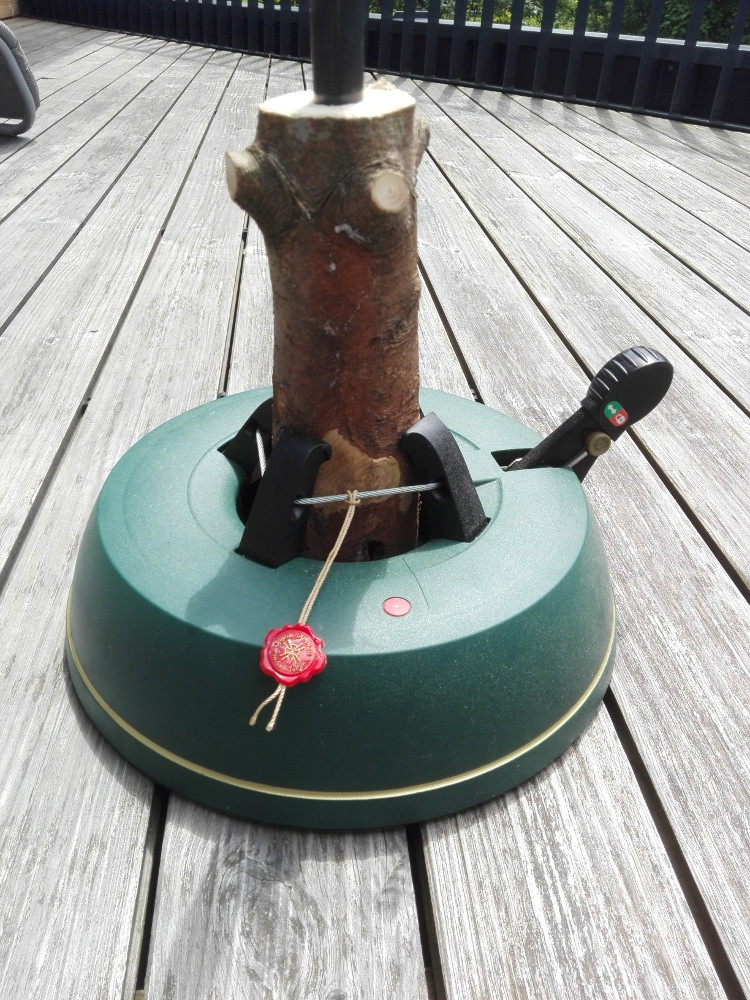 pmeerw's blog
pmeerw's blog
 pmeerw's blog
pmeerw's blog
IKEA has some smart home products: Zigbee light bulbs, a temperature sensor, several remote controller, and -- most importantly -- the Dirigera hub which allows to control the devices via an app or REST API. The hub supports the matter standard and lacks technical documentation (it has USB-C for power supply, an Ethernet plug and expects to local network with WiFi). A Python package, dirigera, is available.
First step is to generate a token (JWT) to enable access to the API, which requires pressing the "Action" button on the hub.
posted at: 18:05 | path: /projects | permanent link
Using two small tools from poppler-utils package... pdftk or qpdf might work as well.
Splitting a PDF document: pdfseparate in.pdf out%d.pdf, can specify the first and last page using -f and -l
Merging PDF documents: pdfunite in1.pdf in2.pdf out.pdf
It would be nice if pdfseparate supported more format specifiers, not just %d; %0d would be useful working with large documents.
posted at: 11:50 | path: /projects | permanent link
... by crafting an universal converter and turning it into
an umbrella holder 
Perfect for installing an umbrella on the balcony!

posted at: 13:36 | path: /projects | permanent link
Run wpa_supplicant using
sudo wpa_supplicant -i eth7 -D wired -c /tmp/802/wpa_supplicant.conf
ap_scan=0
eapol_version=2
network={
key_mgmt=IEEE8021X
identity="test"
password="test"
eap=MD5
}
DH_KEY_SIZE = 2048 CA_DEFAULT_DAYS = 3650 .PHONY: all all: index.txt serial dh random server client ca .PHONY: client client: client.pem .PHONY: ca ca: ca.der .PHONY: server server: server.pem # Diffie-Hellman parameters dh: openssl gendh -out dh -2 $(DH_KEY_SIZE) # Create a new self-signed CA certificate ca.key ca.pem: ca.cnf @[ -f index.txt ] || $(MAKE) index.txt @[ -f serial ] || $(MAKE) serial openssl req -nodes -new -x509 -keyout ca.key -out ca.pem \ -days $(CA_DEFAULT_DAYS) -config ./ca.cnf ca.der: ca.pem openssl x509 -inform PEM -outform DER -in ca.pem -out ca.der # Create a new server certificate, signed by the above CA. server.csr server.key: server.cnf openssl req -nodes -new -out server.csr -keyout server.key -config ./server.cnf server.crt: server.csr ca.key ca.pem openssl ca -batch -keyfile ca.key -cert ca.pem -in server.csr -out server.crt -extensions xpserver_ext -extfile xpextensions -config ./server.cnf server.p12: server.crt openssl pkcs12 -nodes -export -in server.crt -inkey server.key -out server.p12 -passout pass: server.pem: server.p12 openssl pkcs12 -nodes -in server.p12 -out server.pem -passin pass: # Create a new client certificate, signed by the the above CA client.csr client.key: client.cnf openssl req -nodes -new -out client.csr -keyout client.key -config ./client.cnf client.crt: client.csr ca.pem ca.key openssl ca -batch -keyfile ca.key -cert ca.pem -in client.csr -out client.crt -extensions xpclient_ext -extfile xpextensions -config ./client.cnf client.p12: client.crt openssl pkcs12 -nodes -export -in client.crt -inkey client.key -out client.p12 -passout pass: client.pem: client.p12 openssl pkcs12 -nodes -in client.p12 -out client.pem -passin pass: # Miscellaneous rules. index.txt: @touch index.txt serial: @echo '001' > serial random: @if [ -c /dev/urandom ] ; then \ dd if=/dev/urandom of=./random count=10 >/dev/null 2>&1; \ else \ date > ./random; \ fi print: openssl x509 -text -in server.crt printca: openssl x509 -text -in ca.pem
ap_scan=0
eapol_version=2
network={
key_mgmt=IEEE8021X
identity="test"
password="test"
eap=TLS
ca_cert="/tmp/802/ca.pem"
client_cert="/tmp/802/client.pem"
private_key="/tmp/802/client.key"
}
posted at: 00:06 | path: /projects | permanent link
Olimex has a nice board with the Ralink rt5350 MIPS SoC (32 MB RAM, 8 MB SPI flash) with integrated 802.11n wifi. About 24 € with the base port providing two relays, two NICs, USB.
It comes with OpenWRT 15.05-rc3 pre-installed, kernel 3.18.19.
The serial port is 3v3 with 57600 8N1. The left ethernet port is LAN, the right/middle port is WAN.
root@rt5350f:/# cat /proc/cpuinfo system type : Ralink RT5350 id:1 rev:3 machine : RT5350F-OLINUXINO processor : 0 cpu model : MIPS 24KEc V4.12 BogoMIPS : 239.61 wait instruction : yes microsecond timers : yes tlb_entries : 32 extra interrupt vector : yes hardware watchpoint : yes, count: 4, address/irw mask: [0x0ffc, 0x0ffc, 0x0] isa : mips1 mips2 mips32r1 mips32r2 ASEs implemented : mips16 dsp shadow register sets : 1 kscratch registers : 0 package : 0 core : 0 VCED exceptions : not available VCEI exceptions : not available
The relays and the button is nicely exported:
root@rt5350f:/sys/kernel/debug# cat gpio
GPIOs 0-21, platform/10000600.gpio, 10000600.gpio:
gpio-0 (button ) in hi
gpio-12 (relay2 ) out lo
gpio-14 (relay1 ) out lo
GPIOs 22-27, platform/10000660.gpio, 10000660.gpio:
posted at: 22:12 | path: /projects | permanent link